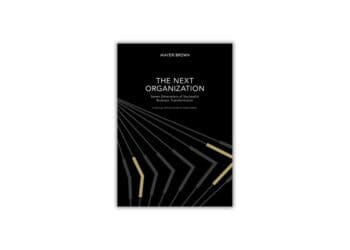Allianz Risk Consulting’s Thomas Varney considers the connection between some of the top risks businesses faced as the COVID pandemic raged – and what the future may hold in terms of managing these risks.
Business interruption (BI), pandemic outbreak and cyber incidents rank as the top three risks in the Allianz Risk Barometer 2021 – the COVID Trio. “Cyber incidents” and “pandemic outbreak” both signal a rise in non-physical damage business interruption (NDBI) risks, an awareness of which has risen among risk managers and onto board agendas as it drives companies to think more about the causes of BI and NDBI in particular. But the real question is, how interlinked are these risks today, and what can we expect in future?
Business Continuity Planning
The best way for businesses to approach uncertain risk situations is through business continuity planning (BCP) for scenarios that challenge the volatility of working environments and the response ability of supply chains. Understanding and proactively handling potential BI scenarios is better done before a crisis. Going forward, if they have not already done so, businesses should consider adding a pandemic scenario to all BCP exercises.
“Pandemic outbreak” is the biggest climber in this year’s Allianz Risk Barometer survey, up 15 positions to #2. “Acceleration toward greater digitalization” (55 percent) is the change caused by the pandemic that respondents believe will most impact their company, followed by “more remote working” (50 percent), “growth in the number of insolvencies” (38 percent), “restrictions on travel/less business travel” (36 percent) and “increasing cyber risk” (34 percent).
The pandemic hastened a work atmosphere which has shown employees can be productive, if remote. Areas like shipping, transit and manufacturing weren’t as able as other types of businesses to transition. Pre-pandemic, businesses offered flexible work approaches and work-from-home days, but the pandemic broadly exacerbated the practice and, by and large, employees adapted.
Businesses dependent on continuous foot traffic, however, were significantly impacted. Many have adapted with alternative approaches, such as purchasing automobiles online or offering take-away because of restricted dining. Post-pandemic they will continue. They’ve proven successful, although business will transact differently in some sectors going forward.
Keeping Supply Chains Intact
“Initiating/improving business continuity management” (62 percent) is the main action companies are taking in order to de-risk their supply chains and make them more resilient during the pandemic, according to the Allianz Risk Barometer 2021, followed by “developing alternative multiple suppliers” (45 percent), “investing in digital supply chains” (32 percent), “intensifying supplier selection, auditing and risk assessment” (31 percent) and “inventory/safety stock management” (17 percent).
Each of the approaches will be required for most companies in order to survive in the short-term and thrive beyond COVID-19, although the impact will be felt for a long time. The digital approach – the ability to connect, meet and transact business electronically – has kept many businesses in touch with customers during the lockdown. Digitalization, itself rife with perils, will continue to expand, and it’s an exposure that businesses must understand.
Where possible, even post-pandemic, many businesses may switch to their pandemic business model moving forward. Situations where real estate footprints can be reduced and employee work-life balance can be better supported will create best-in-class employer competitions for top talent. In the final analysis, data security, as well as customer communications and virtual availability, will require diligent protection. Ensuring data security for work-at-home employees may not mean always working in a secure environment and will continue to pose challenges for firms.
Business Interruption Lessons Learned
The importance of an up-to-date BCP strategy, including having alternative suppliers available for raw and intermediate materials, is one of the main lessons learned from the pandemic. Supply chains were significantly impacted in some industries due to the necessity of temporary – and some permanent – manufacturing plant closures.
Another aspect of BI has been the influx of civil unrest. Differentiating between peaceful protests and violent public disturbances is vital. Organizational operational security management should view current events as a catalyst for evaluating best practices and policies around preparing offices and employees for potential civil unrest, depending on the precipitating event, proximity of the location to the violence and the type of business.
Developing emergency plans is vital. Companies must account for employees and family members, and plans must include clear lines of communication and detailed guidelines for actions at all levels of staff, pre- and post-incident. Response and mitigation best practices protect against or at least minimize the chances that businesses will be targeted. They need to be alert to suspicious indicators and designate clear de-escalation and response steps to avert the potential for personnel injuries and/or property damage.
COVID and Claims
COVID-19 has had a significant impact on BI insurance. With many businesses shuttered or running at reduced capacity, traditional BI claims have significantly diminished. BI losses have also been down, as the vast majority of commercial property policies do not cover BI without physical damage. Additionally, insurers continue to face claims from risks not directly related to the pandemic. For example, we’ve seen large claims from U.S. riots, North America storm damage and large fire and shipping incidents. We may also see an uptick in fraudulent third-party claims against policyholders.
In the near-term and midterm, claims notifications in some lines may be down due to restrictions on business as usual. Fewer slips and falls at malls, airports and other public places are naturally down, due to closures. Claims in other lines, like entertainment and aviation, are up due to losses incurred due to closures, cancellations and truncated schedules. The power/utilities industry has scaled back on preventive and predictive maintenance practices, and major planned outages have been scaled back or deferred. While not immediately impactful from a BI perspective, we may see a delayed impact of maintenance deferrals in terms of equipment failures that otherwise may have been detected in advance, potentially leading to extended periods of downtime and BI loss.
In the long term, growing reliance on technology and remote working, reduction in air travel, investments in green energy and infrastructure and a rethinking of global supply chains would all shape insurance claims. One positive trend could be a renewed focus on BCP and business resilience.
The pandemic is adding to the growing list of NDBI scenarios, such as cyber and power blackouts. The consequences of the pandemic – wider digitalization, more remote working and the growing reliance on technology – could heighten BI risks in coming years, even while traditional physical risks won’t disappear; natural catastrophes, extreme weather and fire remain major worries for some sectors.
Meeting these challenges will require finding ways to quantify exposures, including NDBI and emerging risks. Businesses need to focus on the potential impact of quantifying BI triggers and not rely solely on high-level risk management strategies or blue-sky thinking.



 Thomas Varney is the North American Regional Manager of
Thomas Varney is the North American Regional Manager of 








